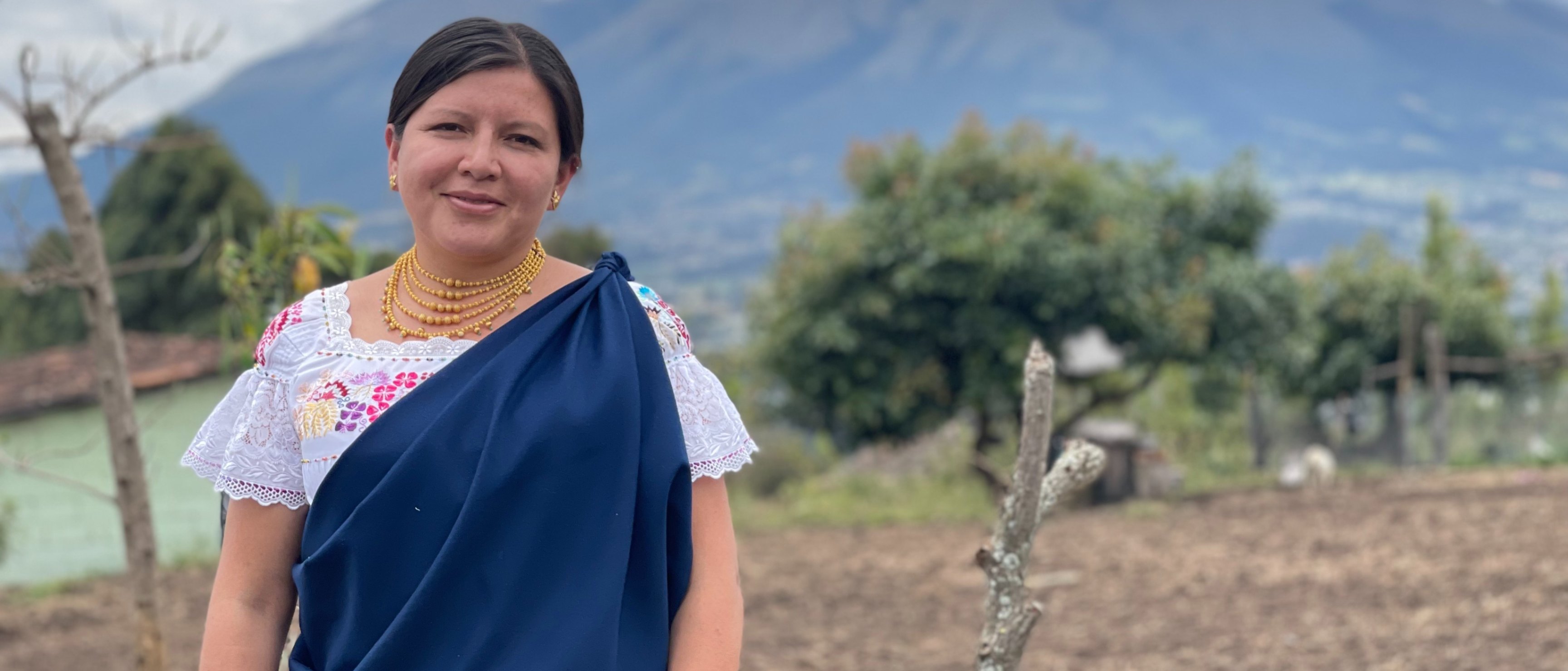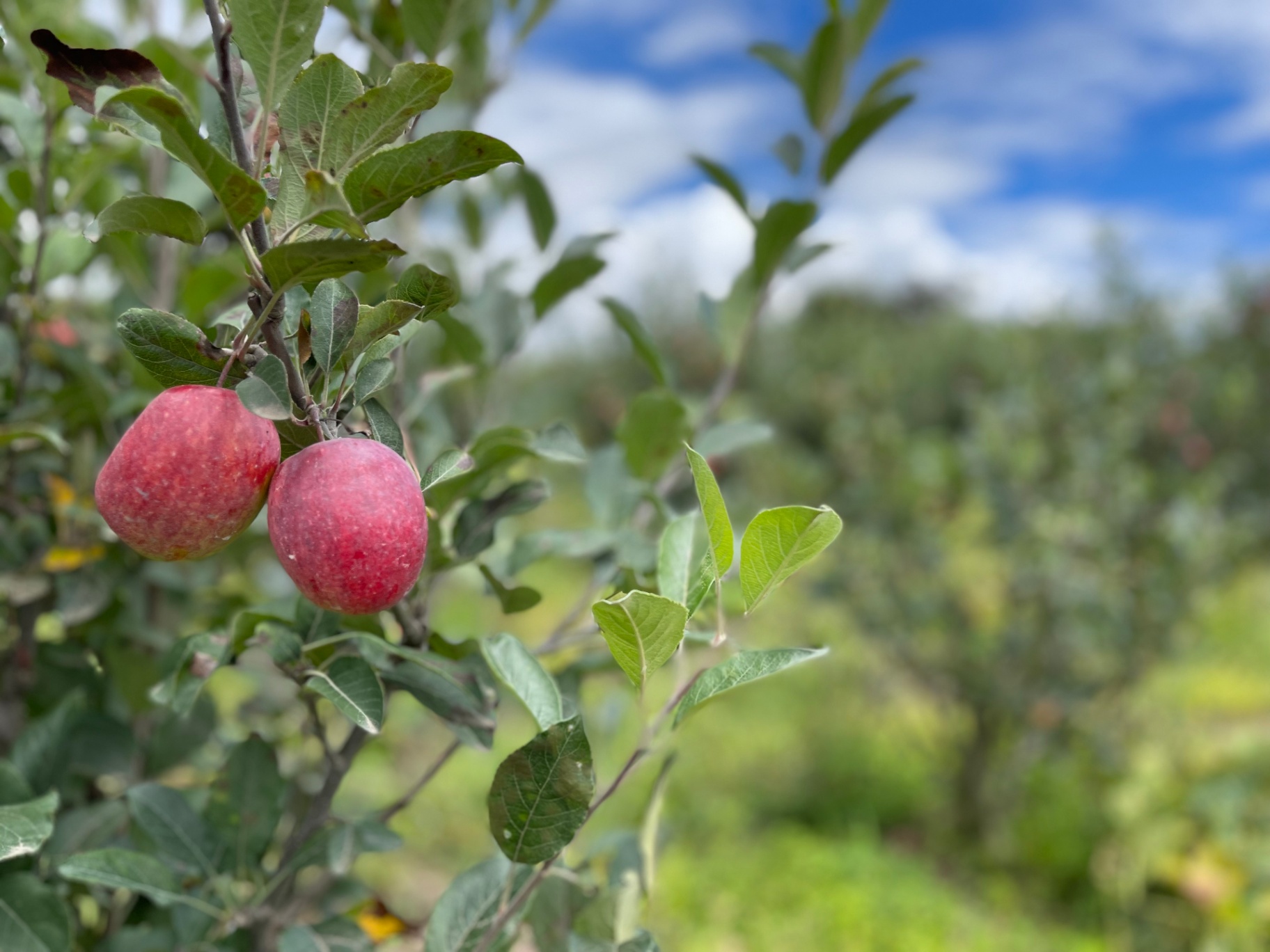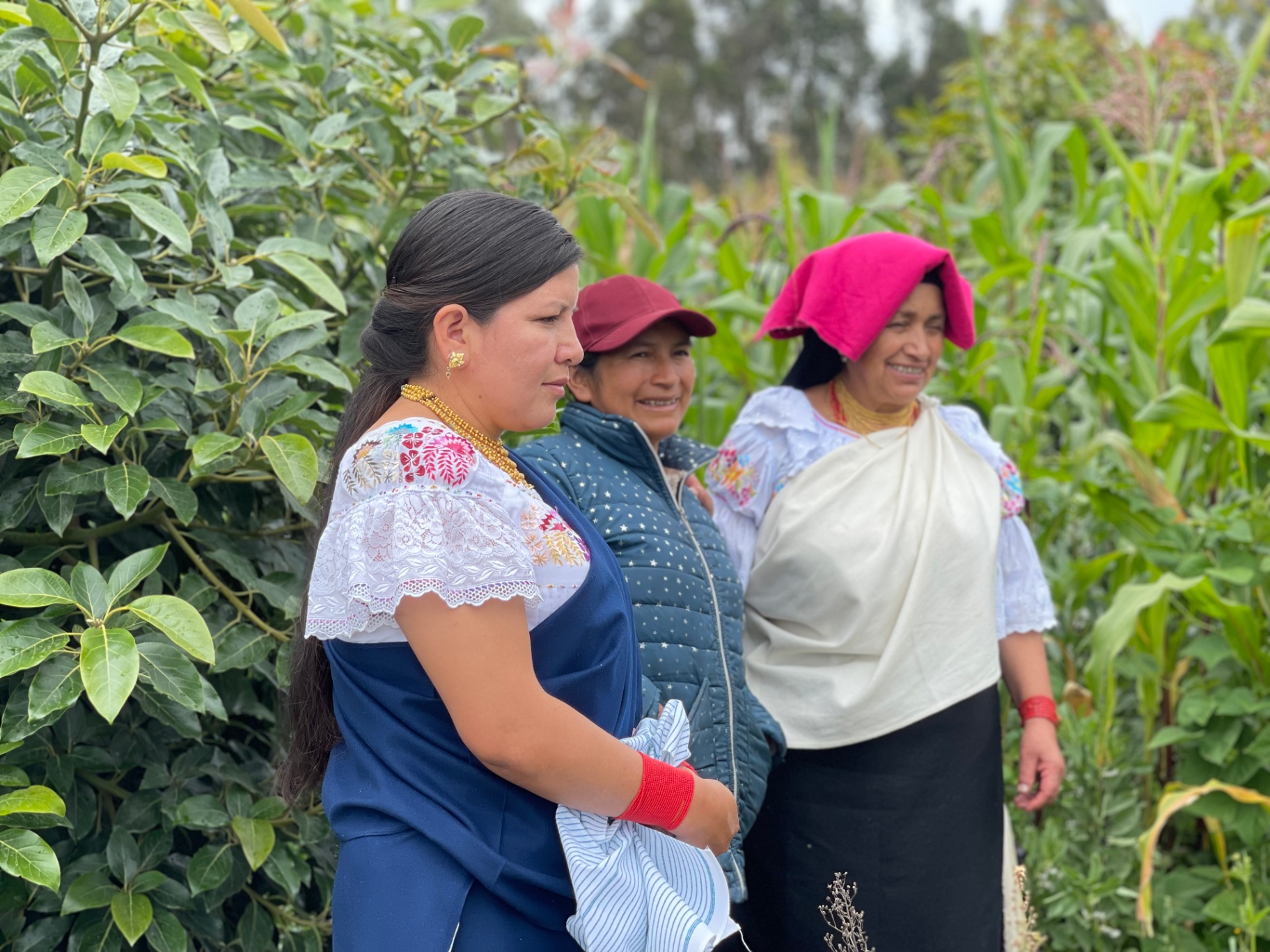
María Piñan
“As indigenous women, we are guardians of seeds [and] the life and culture of our peoples.”
16/10/2024
Ecuador
For María Piñan, farming the way her ancestors did is about more than preserving tradition.
“It is an act of resistance and love for the land,” says the 38-year-old woman from the canton of Cotacachi, in the north of Ecuador.
“As indigenous women, we are guardians of seeds, guarding the life and culture of our peoples.”
And they are organized. Maria is part of the Women’s Central Committee of UNORCAC, the Union of Peasant and Indigenous Organizations of Cotacachi. She has witnessed over the years how the women of her community have organized themselves to maintain food security and sovereignty by conserving the native seeds their ancestors planted for centuries, and with it the biodiversity of their territory.


Every year since 2003, they organize a seed fair called "Muyu Raymi" in Cotacachi, an Andean cultural space where indigenous people from near and far exchange ancient varieties of crops such as corn and beans. Beyond preserving the cultural identity of indigenous communities, it ensures they have access to healthy foods.
The fair is also a key element in conserving the "Andean Chakra", an ancestral indigenous agricultural system that is the basis for ancient gastronomy, medicine and rituals of gratitude to Pachamama, or Mother Earth.
It was recognized as an Important Worldwide Agricultural Heritage System (GIAHS) by FAO in 2023.
"The GIAHS recognition is not only for the country but also for peasant family agriculture and rural women," said María.

Over the years, the women have been able to build up their capacities as producers with the support of the Forest and Farm Facility, which provides financial support and technical assistance to forest and farm producer organizations that have diversified agroecosystems like UNORCAC.
The funding has given visibility and recognition to the women’s work. It has also allowed them to add more value to their products and improve the marketing of Andean goods. All together, it has strengthened the women’s livelihoods and made their agri-food system more sustainable by preserving the local landscape.
María Piñan and the UNORCAC Women are now passing on their knowledge to a new generation and have created spaces to raise awareness among young people about the importance of maintaining the Andean Chakra and their agri-food heritage.
“Our girls and women inherit the wisdom of the Andean Chakra,” she says, “to guarantee our food sovereignty.”
